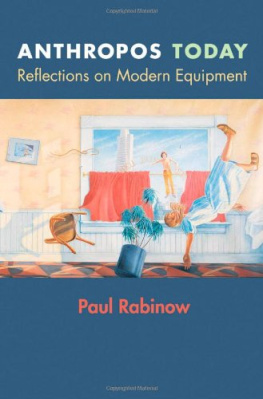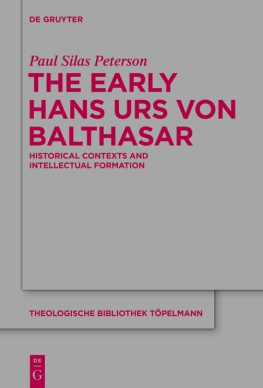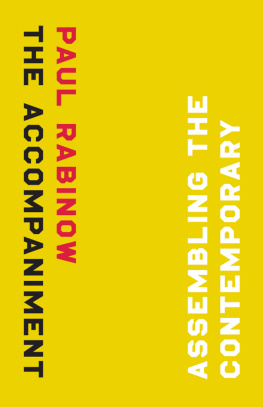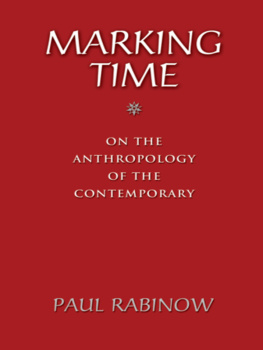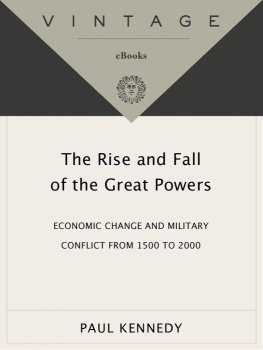Paul Rabinow - Anthropos Today: Reflections on Modern Equipment (In-Formation)
Here you can read online Paul Rabinow - Anthropos Today: Reflections on Modern Equipment (In-Formation) full text of the book (entire story) in english for free. Download pdf and epub, get meaning, cover and reviews about this ebook. year: 2003, publisher: Princeton University Press, genre: Religion. Description of the work, (preface) as well as reviews are available. Best literature library LitArk.com created for fans of good reading and offers a wide selection of genres:
Romance novel
Science fiction
Adventure
Detective
Science
History
Home and family
Prose
Art
Politics
Computer
Non-fiction
Religion
Business
Children
Humor
Choose a favorite category and find really read worthwhile books. Enjoy immersion in the world of imagination, feel the emotions of the characters or learn something new for yourself, make an fascinating discovery.
- Book:Anthropos Today: Reflections on Modern Equipment (In-Formation)
- Author:
- Publisher:Princeton University Press
- Genre:
- Year:2003
- Rating:3 / 5
- Favourites:Add to favourites
- Your mark:
- 60
- 1
- 2
- 3
- 4
- 5
Anthropos Today: Reflections on Modern Equipment (In-Formation): summary, description and annotation
We offer to read an annotation, description, summary or preface (depends on what the author of the book "Anthropos Today: Reflections on Modern Equipment (In-Formation)" wrote himself). If you haven't found the necessary information about the book — write in the comments, we will try to find it.
Paul Rabinow: author's other books
Who wrote Anthropos Today: Reflections on Modern Equipment (In-Formation)? Find out the surname, the name of the author of the book and a list of all author's works by series.
Anthropos Today: Reflections on Modern Equipment (In-Formation) — read online for free the complete book (whole text) full work
Below is the text of the book, divided by pages. System saving the place of the last page read, allows you to conveniently read the book "Anthropos Today: Reflections on Modern Equipment (In-Formation)" online for free, without having to search again every time where you left off. Put a bookmark, and you can go to the page where you finished reading at any time.
Font size:
Interval:
Bookmark:
Anthropos Today

Series Editor
PAUL RABINOW
A list of titles in the series appears at the back of the book
Anthropos Today
Reflections on Modern Equipment
Paul Rabinow

Copyright 2003 by Princeton University Press
Published by Princeton University Press, 41 William Street, Princeton,
New Jersey 08540
In the United Kingdom: Princeton University Press, 3 Market Place, Woodstock,
Oxfordshire OX20 1SY
All Rights Reserved
Library of Congress Cataloging-in-Publication Data
Rabinow, Paul.
Anthropos today: reflections on modern equipment/Paul Rabinow.
p. cm.(In-formation series)
Includes bibliographical references and index.
eISBN 978-1-40082-590-5
1. AnthropologyPhilosophy. 2. AnthropologyMethodology. 3. CultureSemiotic models. I. Title. II. Series.
GN33 .R25 2003
301'.91dc21
2002042564
British Library Cataloging-in-Publication Data is available
This book has been composed in Sabon
Printed on acid-free paper. 
www.pupress.princeton.edu
Printed in the United States of America
10 9 8 7 6 5 4 3 2 1
In memory of Pierre Bourdieu
for lessons, taught and not taught
Acknowledgments
I wrote this book in 20012, during my tenure as a Blaise Pascal International Research Chair at the Ecole Normale Suprieure in Paris. Foremost, my gratitude goes to Professor Claude Imbert: for her encouragement, her support, her graciousness, her learning, and her philosophic dissidence.
My thanks is heartfelt to the cohort of Berkeley graduate students who sustained me through the dark night of my tenure as department chair: Zeynep Gursel, Laura Hubbard, Kevin Karpiak, Joshua Levy, Adrian McIntyre, Alex Choby, Alexei Gostev, Sholeh Ahahrokhi, Dar Rudnyckyj.
Above all, I have been truly graced, fortunate beyond reasonable expectation, to have received such light and warmth from Tobias Rees, Frederic Keck, Stephen Collier, Andrew Lakoff, James Faubion, Marc Rabinow, and Marilyn Seid-Rabinow.
Anthropos Today
Introduction
Modern Equipment
Paraskeu [equipment], [... ] is the medium
[equipment], [... ] is the medium
through which logos is transformed into ethos.
Michel Foucault
This book is proposed as a meditation on Michel Foucaults claim that equipment is the medium of transformation of logos into ethos. A good deal of work is required, however, to grasp what such a claim might mean. The difficulty in part lies in the fact that the terms equipment and meditation are used in a distinctive technical sense. Furthermore, why one would want to transform logos into ethos equally requires explanation. Hence the reader is alerted that reading this book will require a certain patience. Additionally, and unexpectedly, the book addresses the reader as a friend. Initially this appellation too is opaque. However, using as a guide Jean Pauls wonderful claim that Philosophy is the ability to make friends through the medium of a written text, we at least have some sense of the territory to be visited in the following chapters, as well as the manner in which that territory is to be traversed.
Michel Foucault, Hautes Etudes, in LHermneutique du sujet: Cours au Collge de France , 198182 , ed. Frdric Gros (Paris: Editions de lEcole des Hautes Etudes, Editions Gallimard, Editions du Seuil, 2001), p. 312.
A central purpose of the book is to assemble a toolkit of concepts. The goal of such a toolkit is to advance inquiry. The currently reigning modes of research in the human sciences are, it seems to me, deficient in vital respects. Those deficiencies are especially marked in the strained relations between an ever-accumulating body of information, the ways that information is given narrative and conceptual form, and how this knowledge fits into a conduct of life. No doubt all of this demands further elaboration, and this book attempts to respond to that demand.
The term interpretive analytics was coined by Hubert Dreyfus and myself and put to use in our book Michel Foucault: Beyond Structuralism and Hermeneutics . Although the term cannot be said to have gained any special currency in the human sciences, I still find it useful. We arrived at the term while attempting to make Foucaults method more precise and explicit. Our claim was that Foucault was trying to move beyond the two methodological poles then dominant in the human sciences: a version of structuralism in which human signifying practice is seen as generating object-like, rule-governed semiotic systems that produce subjects as a function of discourse; and various versions of hermeneutics that found subjects and cultures infused with deep meaning they themselves had spun, webs of signification requiring interpretation. Foucault, we wrote,
sought to avoid the structuralist analysis which eliminates notions of meaning altogether and substitutes a formal model of human behavior as rule-governed transformations of meaningless elements; to avoid the phenomenological project of tracing all elements back to the meaning-giving activity of an autonomous, transcendental subject; and finally, to avoid the attempt of commentary to read off the implicit meanings of social practices as well as the hermeneutic unearthing of a different and deeper meaning of which social actors are only dimly aware.
Foucault had pieced together an innovative method through his tacking between so-called archaeological and genealogical emphases. Foucault, we argued, had gotten beyond structuralism and hermeneutics by showing how the historical relations of knowledge and power had produced an object of knowledge that was also the subject of knowledge: Man. Further, we concluded that the strengths and weaknesses of Foucaults writings could not be evaluated or appreciated adequately in terms of a correspondence theory of truth any more than through a deconstructive dissipation of the real. Rather, it seemed clear that the power of his work rested on its heuristic value.
There is a lineage of major work in the twentieth-century human sciences that has succeeded in bringing philosophical learning, diagnostic rigor, and a practice of inquiry that operates in proximity to concrete situations into a productive relationship. Such inquiry proceeds through mediated experience. It contributes to what used to be called a Bildung , a process of self-formation, that today might be called an attitude or an ethos. The proximity to concreteness is both the goal and the means through which inquiry operates when it works well. Understanding is a conceptual, political, and ethical practice. It is conceptual because without concepts one would not know what to think about or where to look in the world. It is political because reflection is made possible by the social conditions that enable this practice (thought may be singular, but it is not individual). It is ethical because the question of why and how to think are questions of what is good in life. Finally, all action is stylized; hence it is aesthetic, insofar as it is shaped and presented to others.
The goal of the meditations that follow is neither to systematically survey any specific domain of knowledge nor to solve any particular contemporary dispute. Rather, this book seeks to bring together a set of conceptual tools and to use them as a starting point to advance an experimental mode for the human sciences in which concepts and techniques could be made to function differently. By differently, I mean better. By better, I mean in a moresagacious manner. By a more sagacious manner, I mean a wiser one: logos serving phronesis, phronesis under the sign of philosophy, philosophy under the sign of ethos. By ethos I refer to that space of practice at the interface of ethics and culture. It is a premise of this work that both of the latter terms are very much in question today.
Next pageFont size:
Interval:
Bookmark:
Similar books «Anthropos Today: Reflections on Modern Equipment (In-Formation)»
Look at similar books to Anthropos Today: Reflections on Modern Equipment (In-Formation). We have selected literature similar in name and meaning in the hope of providing readers with more options to find new, interesting, not yet read works.
Discussion, reviews of the book Anthropos Today: Reflections on Modern Equipment (In-Formation) and just readers' own opinions. Leave your comments, write what you think about the work, its meaning or the main characters. Specify what exactly you liked and what you didn't like, and why you think so.

